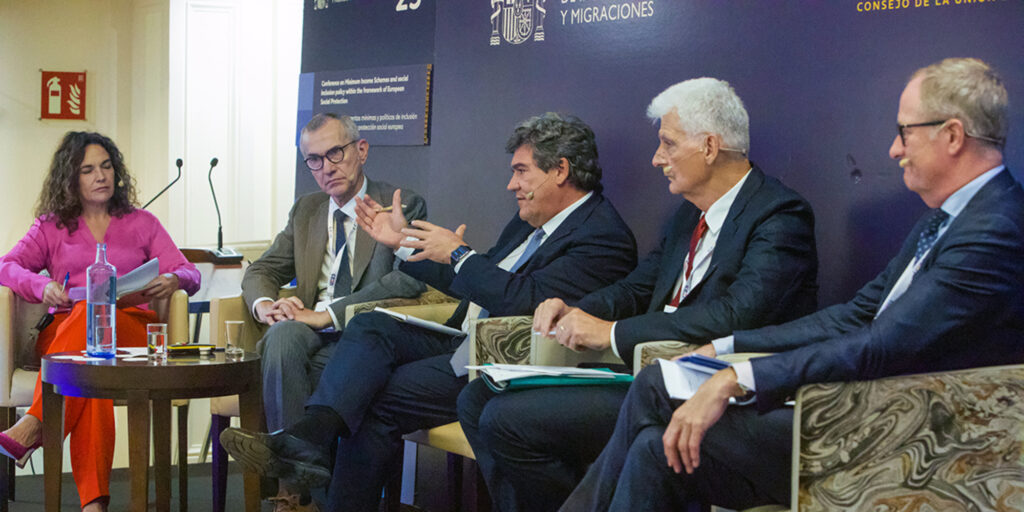The acting Minister for Inclusion, Social Security and Migration, Jose Luis Escrivá, together with, among others, the Belgian Vice-President and Minister for Health and Social Affairs, Frank Vandenbroucke, the German Secretary of State for Labour and Social Affairs, Rolf Schmachtenberg, and the Director General for Employment, Social Affairs and Inclusion of the European Commission, Joost Korte, met in Aranjuez to discuss the future of social inclusion policies in Europe. The meeting, which took place within the framework of the Spanish presidency of the Council of the EU, also brought together experts and civil society organisations, including EFFE which was invited to participate.

The conclusions of this Conference on minimum income and social inclusion policies in the context of European social protection have been included in the Aranjuez Declaration, a document in which the Spanish Presidency reaffirms its commitment to promoting and improving minimum income systems, complemented by other inclusion policies that strengthen their effectiveness.
The Aranjuez Declaration underlines the importance of these minimum income schemes, which guarantee a dignified life, to improve social cohesion on the European continent. In this sense, it reaffirms the commitment to “increase efforts to address the common problem of lack of coverage (non-take-up)” in this type of benefits, as well as to complement the minimum income with policies that encourage access to employment, but also, among others, to education, skills, health care, long-term care and early childhood care for its beneficiaries and to promote the use of data both for the design and evaluation of the policy.
The statement, which was read by Minister Escrivá, concludes by stressing the importance of social investment not only as an instrument for reducing poverty and inequality, but also for “the returns it generates through increased growth, productivity, jobs and wages“.
The acting Minister for Inclusion, Social Security and Migration, Jose Luis Escrivá, together with, among others, the Belgian Vice-President and Minister for Health and Social Affairs, Frank Vandenbroucke, the German Secretary of State for Labour and Social Affairs, Rolf Schmachtenberg, and the Director General for Employment, Social Affairs and Inclusion of the European Commission, Joost Korte, met in Aranjuez to discuss the future of social inclusion policies in Europe. The meeting, which took place within the framework of the Spanish presidency of the Council of the EU, also brought together experts and civil society organisations.
The conclusions of this Conference on Minimum Income and Social Inclusion Policies within the framework of European Social Protection have been included in the Aranjuez Declaration, a document in which the Spanish presidency reaffirms its commitment to promote and improve minimum income systems, complemented with other inclusion policies that enhance their effectiveness.
The Declaration of Aranjuez reflects the importance of these minimum income schemes, which guarantee a dignified life, as a way to improve social cohesion on the European continent. The document also reaffirms the commitment to “increase efforts to combat the common problem of the lack of coverage (non take-up)” in this type of benefits, to complement minimum incomes with itineraries that improve the inclusion (labour, social, educational, etc.) of their beneficiaries and to promote the use of administrative records for both the design and evaluation of the policy.
The statement, which was read out by Minister Escrivá, concludes by emphasising the importance of social investment not only as an instrument for reducing poverty and inequality but also for “the returns it generates through increased growth, productivity, jobs and wages”.
During his speech at the conference, the acting Minister Escrivá stressed the importance of social investment being “well defined and conceptualised to create a rigorous, evidence-based framework that can be used to indicate which social investments provide companies with medium and long-term returns, so that they can be treated differently in the European tax framework“, an initiative that is being developed jointly by the Spanish presidency and the future Belgian presidency